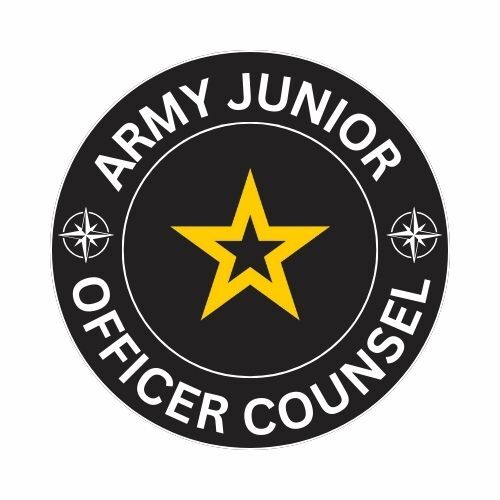5 Tips for Your First 90 Days

So you’re looking ahead to starting a new leadership role. Excellent! As Army officers, we change positions around every 12 months. Sometimes we must interview for a position while other times we are simply told what our next role will be. When interviewing for a position, you may be asked, “what is your 90-day plan?” Even if you’re assigned to a position without an interview, your boss is likely expecting you to have at least a basic plan. In other words, it’s good to have a plan for your first 90 days.
So what should you do in your first 90 days? Maybe you’ve received advice from peers or mentors. Maybe you’ve already been assigned to a few different positions and have an idea based on past experiences. How many of you have heard, “Don’t do anything. Just watch, listen, and learn for a bit”? This might be good advice, but it could also be disastrous.
Do circumstances matter? Was your predecessor relieved? Maybe change is needed ASAP – and waiting 90 days before taking action could send a signal that you’re incompetent or further entrench dysfunctional practices. If it’s a “normal” transition, maybe you don’t want to drastically change anything- but maybe you focus on small changes to start to build confidence and trust in your new team.
The advice “don’t do anything. Just watch, listen, and learn” is well-intentioned. What those who prescribe it might mean is “there is a lot you don’t know, so don’t rush to judgment or you may end up making mistakes and damaging relationships you’ll need to successfully lead your organization in the future.” So a good maxim may be to “listen more than you talk.”
The first 90 days may require certain mandatory actions – like a command climate survey or inspections of key areas. Or perhaps you identified issues during your inventories that require you to take immediate action. If you have subordinates, initial counseling needs to fit in there someplace too.
The list of things you need to do in the first 90 days to “get up to speed” will vary by your position and organization, but there are some common things all leaders can focus on in their first 90 days to set themselves up for success. In the first 90 days, leaders should:
- Know your team. Conduct a listening tour to learn what every person or element does – but prepare in advance for this. Ask questions. Learn names. Understand shortfalls in personnel and resources. Focus on building relationships that will serve you well over the course of your assignment (and beyond). For example, maybe you find out your NCOIC is expecting a child. You could check to see if the unit is getting her or him a baby cup or gift – if that is something your unit does.
- Learn the technical aspects. Examine and evaluate systems and processes. Did you pass the most recent round of inspections (do people remember the last time they were inspected!). Does your type of unit have special regulations you need to become familiar with? Does your organization have special equipment or a unique mission you did not learn about in your professional military education, etc? Understanding some of the technical components can help increase perceptions of competence and engender trust down the chain of command.
- Focus on culture. Don’t focus just on the administrative elements of your role and team. Pay attention to the culture. You’ll need to determine how to fit into the existing culture, or how you may want to adjust it as the new leader. Be careful to not talk about your last position, unit, or assignment too much. You’re in a new role. You may call on knowledge gained in your prior experiences, but focus on the team you’re in.
- Understand guidance from higher. If you aren’t provided initial counseling, ask for guidance from your rater or supervisor. Better yet, go in with your 90-day plan or insights gained from your first few weeks in the position and seek feedback/guidance. Being prepared will help build trust up the chain of command.
- Engage in self-assessment. There is a lot to learn and do. What areas do you have some expertise? What areas might you be lacking? Take stock of your strengths and weaknesses. Establish a list of priorities to help guide your efforts in the first 90 days – and beyond!
Getting up to speed in your new role will likely take more than 90 days, but that doesn’t mean you shouldn’t have a plan.[i] Your commander or supervisor will most likely give you guidance, but you should not rely on her or him to completely chart your course. You’re being put in charge – so be in charge.
There are a number of books and articles on what to do within the first 90 days of a new job. We recommend you explore some of these resources.
———
Lieutenant Colonel Jordon Swain is the Director of the Center for Junior Officers and has course directed the core Leadership course at West Point. He holds a Ph.D. in Organizations and Management from Yale University and a MBA from the Wharton School. LTC Swain has published on multiple topics related to leader development including leader humility, mentoring, and humor’s impact on leadership effectiveness.
Chad Plenge teaches leadership psychology at the United States Military Academy and develops high potential leaders with the US Army’s Center for Junior Officers. He holds a Master of Arts in Organizational Psychology from Columbia University, a Master of Business Administration, and a Bachelor of Science from the United States Military Academy. Chad is a certified Project Management Professional and an active duty officer in the US Army. In his free time, Chad serves as the President of the board of directors as well as an Assistant Director for a non-profit organization focused on developing youth leadership.
———
[i] https://www.mckinsey.com/business-functions/organization/our-insights/the-organization-blog/it-really-isnt-about-100-days#



